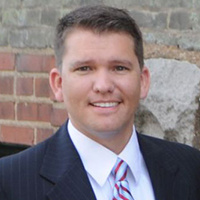 Dover Felony Lawyers, Tennessee
Dover Felony Lawyers, Tennessee
Not enough matches for Dover Felony lawyer.
Below are all Dover Criminal lawyers.
Sponsored Lawyers
1-10 of 17 matches
Criminal, Felony, DUI-DWI, Misdemeanor
What to know: We are a full-service law firm that focuses on the interest of our clients. I practice in the areas of: Bankruptcy Law, Criminal Law, Contracts & Property Disputes. I have represented hundreds of clients on a number of different issues from state court to the federal courts. I strive each day to provide competent and sound legal representation. Enjoys: spending time with his children and family, restoring homes, coaching his children’s soccer team and spending time on his farm.
(more)




